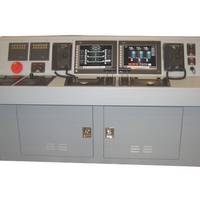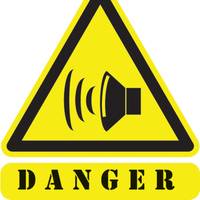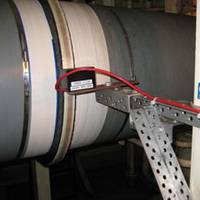Maritime Thought Leadership: Christopher J. Wiernicki, ABS

The maritime industry has been challenged, to say the least. Today, where do you see challenge? Where do you see opportunity?It’s clear our business environment continues to change and we have a new definition of what normal means: nothing is normal. We are in era of rapid, disruptive and impactful change.The coming years will bring further turbulence, shaking out our industry and setting the course for the next 20 years and beyond. Market cycles will continue to evolve and will be impacted differently than they are today.For example…
Vessel Automation: Command & Control

The marine industry is becoming increasingly competitive, with many looking to lower transportation costs while demanding the highest environmental and safety standards. Automating vessel operations and systems can significantly improve a vessel owner’s competitive edge in the market, by reducing staffing requirements, improving asset management, maintenance costs and minimizing risk of environmental incidents due to human error. On a ship, there are many parameters that needs to be controlled or monitored including: temperature…
Burning Low-sulphur Marine Fuels: Technical Advice
Typical technical problems experienced by shipowners when they are required to use low-sulphur fuels include issues with the supply and storage of lowsulphur fuel, problems with machinery operation when using low-sulphur fuel, incompatibility between fuel types, and difficulties and delays when changing over from one fuel type to another. Solutions come in the following UK P&I Club Advisory. To avoid such problems, shipowners should consult their engine and boiler manufacturers for advice on operating with low-sulphur fuel and the need for any equipment and system modifications. system temperature and pressure alarms, fuel filter differential pressure transmitters and so on are accurate and operational. On each ship the fuel change-over procedure should be clearly defined and understood.
The NOISE Code

Maritime Safety Committee adopted the Code on Noise Levels on board Ships, Resolution MSC.337(91), commonly referred to as the Noise Code. The Noise Code is being made mandatory by means of Resolution MSC.338(91), which amends the SOLAS Convention to add new Regulation II-1/A-1/Reg. 3-12 – Protection against noise. In accordance with this new regulation, the Noise Code will apply to ships of 1,600 gross tonnage and above: (1) for which the building contract is placed on or after 1 July 2014…
Flagship-EEM Enables Reduction of Fuel Consumption

Flagship, a part EU-funded maritime transport project, has achieved major advances in accurately measuring on-board power requirements and thereby enabling a reduction in fuel consumption through the development of Flagship-EEM (Energy Efficiency Monitoring). The system enables data acquisition and analysis to continuously evaluate power requirements at every stage of a vessel’s voyage. The system provides information that enables improved fuel consumption that can reduce both operational costs and its environmental impact.
Videotel Expands to Meet Demands
Maritime training provider Videotel Marine International has announced a significant expansion of its computer-based training packages. Videotel has teamed-up with marine engineering training company Cobalt and is now able to offer a whole spectrum of computer-based training modules on marine engineering and associated topics. London today, Chris Haughton, deputy managing director of Videotel said, "The demand for computer-based training is growing all the time because it allows shipowners and seafarers a flexible, but inexpensive approach to training. We are delighted to be teaming-up with Cobalt as we are now able to offer an additional 160 computer-based training modules. The marine training packages available through Videotel - Cobalt are grouped into 19 topics.
Control System from EDI
Electronic Design, Inc. (EDI), designs and manufactures shipboard control and monitoring systems, training and simulation systems, and related products for large and small ships; both commercial and military. In 1997, EDI was chosen to participate in the U.S. Navy's Smart Ship project, and was awarded a contract to completely retrofit the hardwired Machinery Plant Control and Monitoring System (MPCMS) aboard an amphibious troop carrier (LSD 47), with a state-of-the-art, processor-based, software system using commercial off-the-shelf (COTS) technology. Smart Ship was conceived in 1996 by the Navy to evaluate its future with respect to manpower and cost. It was clear COTS technology and reduced manning were essential elements.







